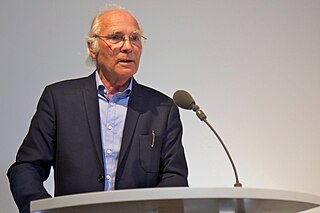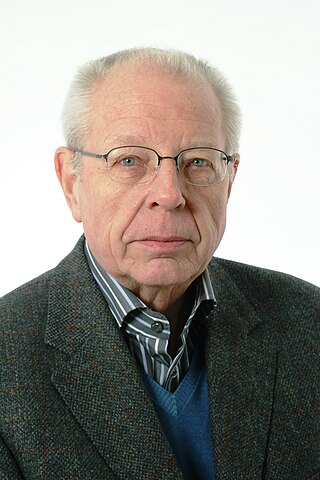Related Research Articles
Imanuel Geiss was a German historian.

Arnold Dietrich Schaefer was a German ancient historian, who was a professor of history at the University of Greifswald (1857-1865) and then at the University of Bonn (1865-1883).
Friedrich Wilhelm Karl Ritter von Hegel was a German historian and son of the philosopher Georg Wilhelm Friedrich Hegel. During his lifetime he was a well-known and well-reputed historian who received many awards and honours. He was one of the major urban historians during the second half of the 19th century.
Olaf Blaschke is a German historian. His research has focused on the modern and contemporary periods. Several of his more substantial publications have involved the Roman Catholic church.
Heide Wunder is a German historian.

Ulrich Pfeil is a German historian based in France.
Ulrich Muhlack is a German historian.
Michael Maaser is a German historian, archivist of the Goethe University Frankfurt.
Franz Schnabel was a German historian. He wrote about German history, particularly the "cultural crisis" of the 19th century in Germany as well as humanism after the end of the Third Reich. He opposed Nazism during the Second World War.
Johannes Kunisch was a German historian. He held chairs of early modern history at the Goethe University Frankfurt. (1972-1976) and the University of Cologne (1976–2002). Through his publications Kunisch became one of the leading German early modern historians. His biography Frederick the Great, published in 2004 and widely acclaimed, gave lasting impulses to Prussian research.
Hans-Christof Kraus is a German historian.
Helmut Neuhaus is a German historian who specialises on the Early modern period. From 1989 to 2009 he held the Chair of Modern History I at the University of Erlangen–Nuremberg.
Peter Baumgart is a German historian.
Peter Herde is a German historian. His research activities range from fundamental work on papal diplomatics of the Middle Ages to the history of the country up to the Second World War.
Ludwig Petry was a German historian.
Rudolf Kötzschke was a German historian who founded the Seminar for Regional History and Settlement Studies in Leipzig, the first regional history institution at a German university.
The Institute of Bavarian History at the Ludwig Maximilian University (Ludwig-Maximilians-Universität) in Munich is a centre of research and teaching of Bavarian history in a European context. It is located in the building complex of the Bavarian State Archives and in the immediate vicinity of the Bavarian State Library.
Angelika Schaser is a German historian.

Helmut Bley is a German historian. He is professor emeritus for modern and African history at the historical seminar of the Leibniz University Hannover.

Leonhard Harding is a German historian and scholar in African studies.
References
- ↑ Anglika Schaser: Das Historische Seminar der Universität Hamburg — Forschungsbericht. Hamburg 2005, Onlinetext.
- ↑ SPD. "Vorstand Historische Kommission" (in German). Retrieved 27 October 2020.